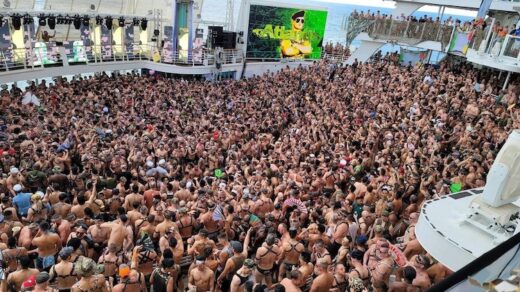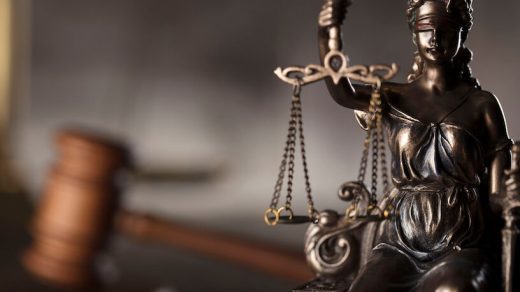Poet Jericho Brown: This Country Doesn’t See Black People as Human
The holiday of Juneteenth commemorates the official end of American slavery, when it was abolished 155 years ago in Texas, the last state practicing it. Black people were so dehumanized at the time they were not only considered chattel by half the nation, up until that moment the federal government counted them as 3/5 human in the Census and House of Representatives.
The 19th century may seem like a long time ago, but an 80-year-old person living today could have realistically heard stories of slavery and The Three-Fifths Compromise from a grandparent who lived through those days. The fact that so many white Americans in 2020 are unconcerned with Black Americans being killed by police, suffering disproportionately from diseases like COVID-19 and HIV, and being subjected to profiling when they shop, barbeque, or birdwatch in a park, is simply an extension of that belief that Black people are less than human, according to out poet Jericho Brown, who won a Pulitzer Prize this year for his third collection, The Tradition.
Brown spoke recently to Plus (The Advocate’s sister publication) about this country’s enduring racism. Brown said many white Americans are insulated from the reality of Black life, and their ignorance is only penetrated when they see videos like that of George Floyd’s killing by police or read how Breonna Taylor was shot by officers while sleeping in her bed.
“Something seeps into the zeitgeist where we have a better understanding of these murdered people having been human beings. That was somebody’s [child],” Brown says. “But I also think we have a long way to go. I say we, I mean America. We have a long way to go in understanding Black people as human beings. The thing that allowed Tamir Rice’s death to happen was that those police officers imagined they were murdering a human being. They didn’t think for a second this kid could have liked flowers, that this kid could have had a mother. Black children don’t get the privilege of being children.”
When asked about whether he sees parallels between gay and bisexual men being blamed for HIV in the 1980s and Black people being blamed and suffering disproportionately from both HIV and COVID-19 today, he shrugs it off. Brown says it’s less about parallels and more about a persistent belief by most Americans that certain groups are sub-human.
“I think of a continuum,” Brown says of systemic racism and homophobia. “I think the same thing that allowed people to be afraid of Black folks participating in peaceful, non-violent action during the civil rights era, those are the same things we’re dealing with now.”
Brown continues, “Gay men having HIV and dying of in the ’80s and ’90s was only the opportunity to further show how people felt about gay people. That wasn’t new. Gay people were being castigated, rounded up, beat up. That hasn’t changed. That’s not on the parallel, it’s on the continuum. For all our talk about bullying, for all our talk about equality, supposedly feminine boys are treated horrendously and have to grow up understanding the threat of violence above their shoulders. That’s not new. I don’t think of ‘this is like that.’ This is the same bullshit.”
Keep an eye out for Brown’s full interview with Plus, coming soon.
Original Article on The Advocate
Author: Neal Broverman





